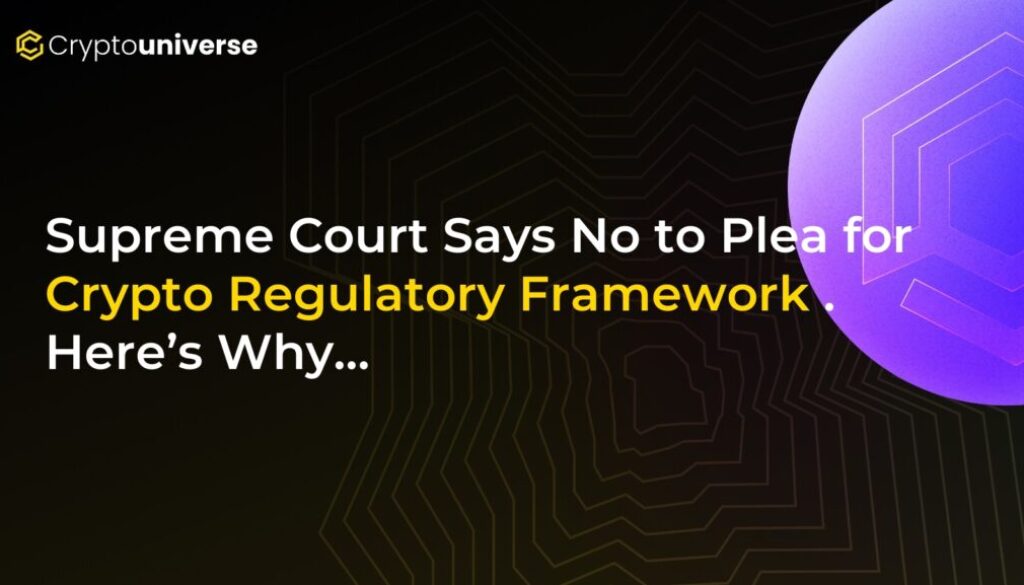Supreme Court Says No to Plea for Crypto Regulatory Framework. Here’s Why…

India’s Supreme Court Defers Crypto Regulation to Government
The quest for a clear regulatory framework for cryptocurrencies in India faced a setback today. The Supreme Court of India (SC) declined to entertain a petition seeking directions for the government to establish rules for the digital asset space. According to a report by PTI, the apex court clarified why this responsibility lies squarely with policymakers, not the judiciary.
What Happened in Court?
On April 16th, a bench comprising Justices BR Gavai and Augustine George Masih heard the plea. The petitioners, represented by their counsel, highlighted that numerous complaints related to cryptocurrencies have been filed across the country. They argued that without a specific law or regulatory framework, there’s significant ambiguity and potential harm, urging the court to direct the Centre and relevant authorities to create one.
Why Did the Supreme Court Refuse?
The court’s reasoning was rooted in the principle of separation of powers. Justice Gavai directly addressed the petitioners’ request, stating, “It is in the domain of policy makers. How can we issue any such direction? We can’t lay down the law.”
The bench further elaborated, emphasizing that the issues raised and the relief sought fall under the purview of the legislature (which makes laws) and the executive (which implements policy). “The prayers made in the petition are within the domain of the legislature and the executive. In that view of the matter, we are not inclined to entertain the petition,” the bench concluded.
What’s Next for Crypto Regulation in India?
While dismissing the plea, the Supreme Court did offer an alternative path for the petitioners. The bench noted, “If the petitioners so desired, they could make a representation to the appropriate authority to be considered.” This essentially directs the concerns back to the Government of India.
This decision reinforces the ongoing uncertainty surrounding cryptocurrency regulation in India. As recently as January 2024, the central government informed the Supreme Court that it was still deliberating on a mechanism to regulate cryptocurrencies and effectively handle related offences. Today’s ruling means the crypto community, investors, and businesses must continue to wait for the government to formulate and announce a clear policy.
The lack of a defined regulatory framework remains a significant point of discussion and concern within the Indian crypto ecosystem, especially considering the existing tax implications (like the 30% tax and 1% TDS) imposed on crypto transactions.
A Quick Refresher: What is Cryptocurrency?
For context, a cryptocurrency is a digital or virtual currency that uses cryptography for security. This makes it extremely difficult to counterfeit. Cryptocurrencies typically operate on decentralized networks built on blockchain technology – essentially a shared, immutable digital ledger distributed across many computers. Some of the most well-known examples include:
- Bitcoin (BTC): The first and largest cryptocurrency by market capitalization.
- Ether (ETH): The native currency of the Ethereum blockchain, known for smart contracts.
- Tether (USDT): A popular stablecoin pegged to the value of the US Dollar, widely used for trading.
The Road Ahead
The Supreme Court’s decision underscores that the power and responsibility to shape India’s crypto future lie with the government. While the court acknowledged the petitioners’ concerns, it maintained its stance on judicial limitations in policy-making domains. The focus now shifts back to the executive and legislature to provide the much-needed clarity for the burgeoning digital asset sector in India.
(Based on information including inputs from PTI)


